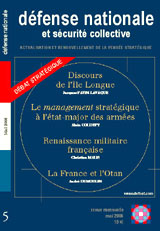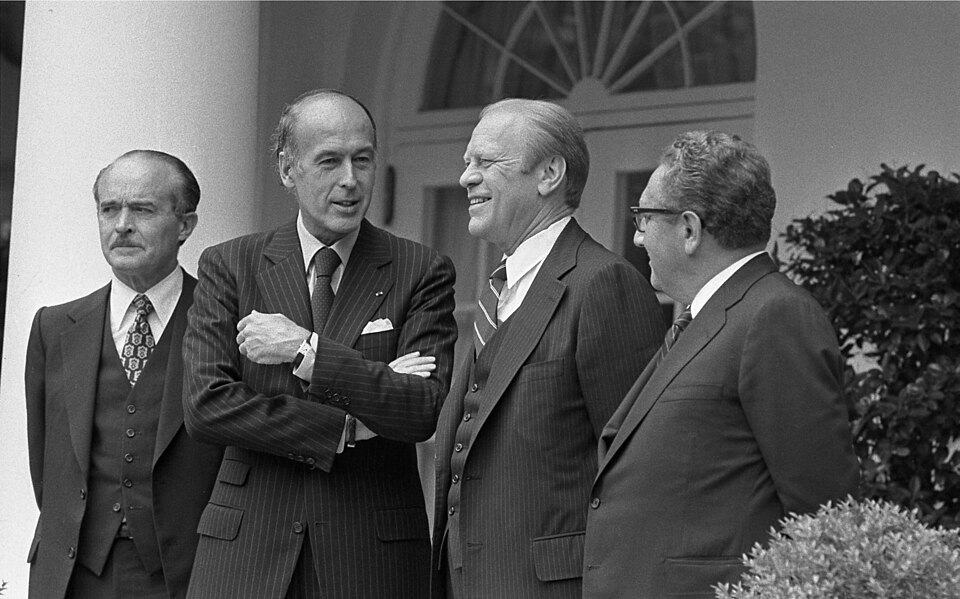Edition anglaise

May 2006 - n° 686
The Île Longue speech: a turning point for French nuclear deterrence policy - Jacques Favin-Lévêque
French nuclear deterrence policy has barely evolved since its inception in the 1960s. Intended to deter any attack against the nation’s vital interests, it was, until now, directed solely against states which were themselves nuclear-armed. Thus defined it has enjoyed several decades of tacit political consensus. The speech given by the head of state at l’Île Longue on 19 January 2006 substantially modifies this theory of deterrence by extending the possibility of threatened employment to certain non-nuclear states, and by widening the definition of vital interests, in terms of their geographical location and of their very nature. This article attempts to analyse this important development in French policy. It underlines its relevance, but equally gives warning of its relative fragility in France’s 2006 geopolitical environment.
French military renaissance - Christian Malis, Nicolas Constant
At the heart of every recurrence of ‘military renaissance’ one will always find a shock, whether political, doctrinal or technical. France, orphan-child of a politico-military model based hitherto on deterrence, is today experiencing its ‘political shock’. Our armed forces are seeking a way between the challenge of ‘Transformation’ and the frustrations of ‘violence-control’. It is by refining an innovative operational art based on manoeuvre as a way of rising above our current strategic isolation that France can achieve its ‘military renaissance’.
France and NATO: between political distrust and doctrinal rapprochement - André Dumoulin
French diplomatic criticism of a NATO which is tending to become a sort of catch-all organisation, if not the ‘world policeman’, is consistent with France’s repeated refusals to rejoin NATO’s integrated military structure. But these days France declines to turn in on itself, whether in the military, operational, doctrinal or technological fields. There exist points of consensus, areas of influence, attempts to share, doctrinal interactions. It is a question of marking out its territory inside NATO itself. The French ‘game’ of competition between NATO and the EU, and then the strategy of swinging towards one and then the other, have been succeeded by the military and diplomatic flexibility of working in a spirit of complementarity between the Alliance and the European Union, of making sure of command appointments on an opportunity basis, and if necessary of acquiring experience from the Americans in specific operations.
The Prophet and the cartoons - Claude Le Borgne
The publication, in Europe, of cartoons of the Prophet Muhammad has created quite a storm. It is not so much the representation of the Prophet which is at issue, as what is implied by the images: Muhammad was apparently a man of violence. Burning topic. Let us tackle it!




_astronaut_Sophie_Adenot_(jsc2025e058846_alt).jpg)



